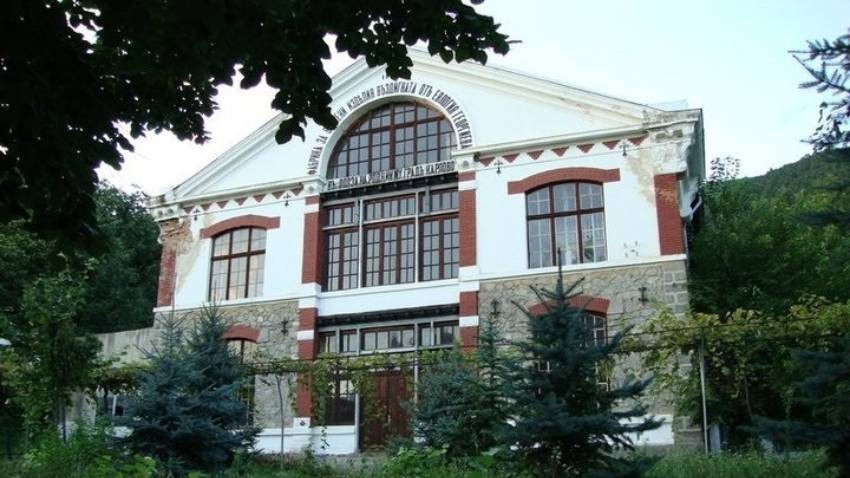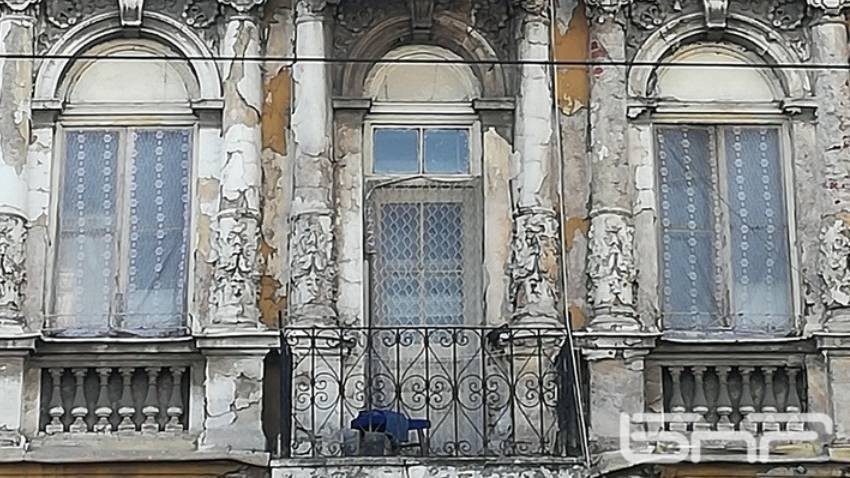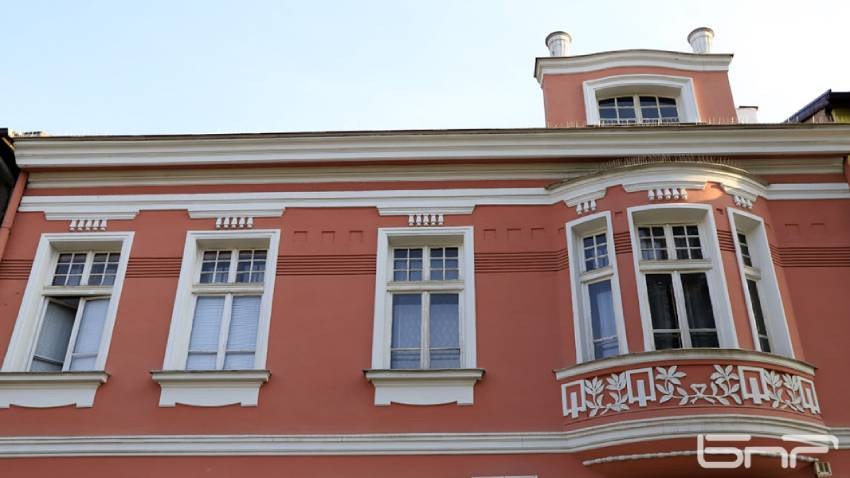"To be or not to be: CULTURE" - this is the idea of a three-minute clip by students from the "Nikola Obreshkov" High School of Science and Mathematics in Kazanlak, participant in the ImagineEU competition of the European Commission.
Eleventh graders Kristian Petrov, Toma Tasev and Boris Iliev responded to the call to imagine the change they want to see in the European Union with a story about the history and present of two iconic buildings.
"One of them is the Papazov House in Kazanlak, the facade of which was renovated a few years ago," Christian Petrov says. "Today, however, it is the subject of vandalism - the windows are broken and there are graffiti all over it."

"The building belonged to a wealthy family of rose growers and merchants, who were involved in Bulgarian education before the Liberation, and were active on matters related to the Bulgarian struggle for freedom. Later, diplomatic meetings were held there; the Unification of Bulgaria was also discussed in the house.

The other building is the textile factory donated to the people of Karlovo by the brothers Evlogi Georgiev and Hristo Georgiev, which shares a similar unhappy fate. It is collapsing, although the idea once was that all the money earned from the production would go into local education.”
Video with English subtitles:
"One of the most striking problems is related to ownership,” Kristian Petrov says. “Although the people who once built these buildings were wealthy, their heirs did not always manage to preserve the legacy. This is the reason why we propose a single European legislation, through which, on the one hand, the problems with ownership will be solved, and on the other, the countries with their cultural heritage abroad will be able to take action to protect it. An example in this regard is the printing house of Lyuben Karavelov in Bucharest - a building that we have lost, unfortunately."

The second measure that the high school students propose is related to the reasonable distribution of the funds granted by the European Union for the restoration of buildings of historical importance. This is related to the attitude of all of us towards this cultural heritage.
"When a building is restored, it should be adapted to meet our needs as a society and not necessarily become a museum," Kristian adds. “There can be activity going on in it that allows it to support itself, so that it would not become derelict again. And citizens, seeing such a problem, should protect these buildings.”
But why do we neglect our historical heritage and often there is no public reaction when old and beautiful buildings are crumbling down?

"This is quite a complex and, I would say, philosophical question as it is related to our attitude towards everything around us,” Kristian Petrov says. “Negligence can be seen everywhere. It seems that we get absorbed in our everyday life and miss the truly valuable things. In many cases it is just a building that we pass by every day while going to school or work. Behind its facade, however, there is history and valuable moments from which we can learn."
Inclusion of refugees into the countries that sheltered them, creating a club for debates with the participation of young people from the Old Continent, more opportunities for educational trips - these are some of the ideas of the participants of the competition, aimed at improving life in their country. Kristian Petrov also has a vision of how to make Bulgaria a better place to live in.

"I recently read a study on the main types of discrimination at the European level and I was impressed by the so-called age discrimination,” he says. “There is a feeling that society sometimes shows young people that nothing depends on them, no matter how much we hear the opposite. However, in order for the situation in Bulgaria and other countries to become better, it would be good that their voice is not stopped. We started our project with the clear thought that there is something more than just functional literacy and that is culture, active civic position, and in general the attitude towards our surroundings.”

Bulgarian students can move forward in the ImagineEU competition, and why not win it? Anyone can support them in the public vote until January 28 by visiting the competition web site. See the voting instructions - HERE.
English: Al. Markov
Photos: BTA, BGNES, BNR, personal archive
The usurpation of cultural heritage is one of the many inevitable consequences of any military conflict, both historically and today. Until the end of the war in Ukraine, it is impossible to adequately analyse the extent of the damage caused to the..
Athens plans to modernise the Greek army by 2030 Greece's Defence Minister Nikos Dendias presented the plan for changes in the army to the parties in parliament. The reforms will cover all three branches of the military. By 2030, 33 units..
A short video kaleidoscope of the "untold stories" of worthy Bulgarians - scientists, entrepreneurs, engineers, artists - who have contributed to our country's good image in the eyes of the world opened an unconventional public forum that showcased the..
At the Bulgarian Embassy in London, Prof. Bettany Hughes presented excerpts from the new BBC series - Wonders of Bulgaria. Prof. Bettany..
Over 3.5 million Ukrainians have arrived in or passed through Bulgaria since the beginning of the war. Nearly 200,000 people have found temporary..
An innovation for the treatment of diabetic foot ulcer using the patient's own tissue and artificial intelligence has been implemented at the University..

+359 2 9336 661
